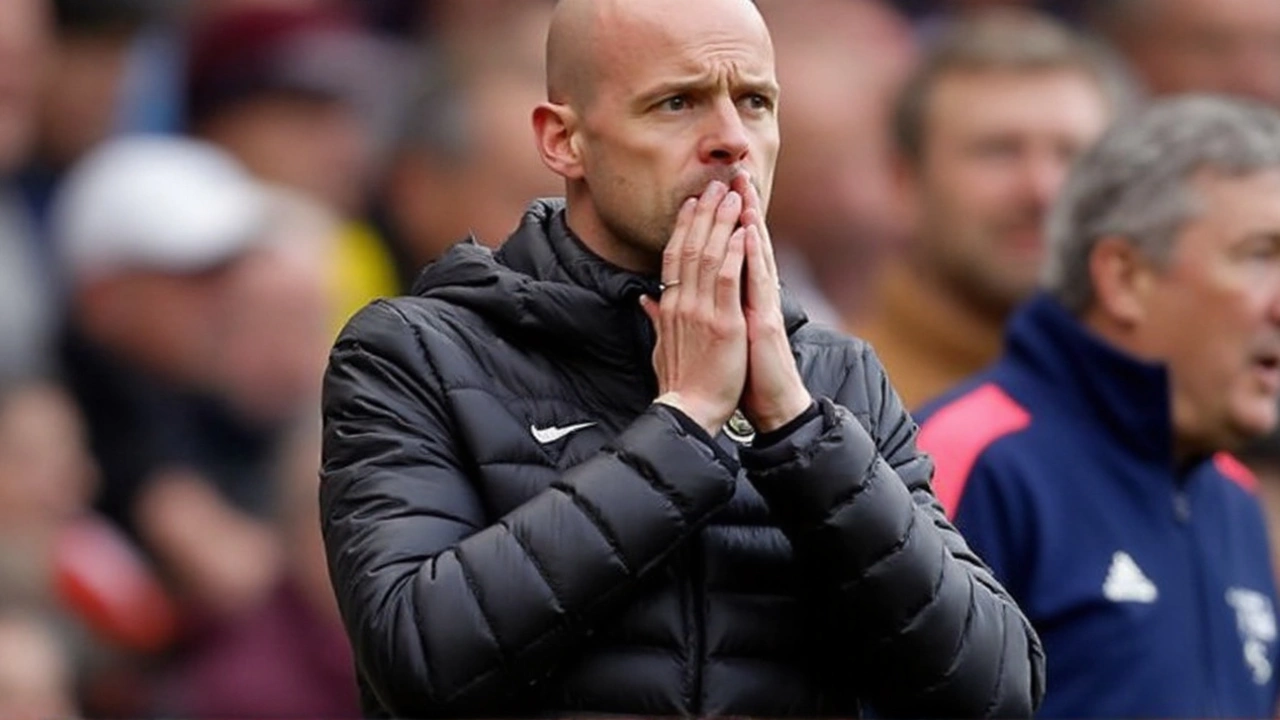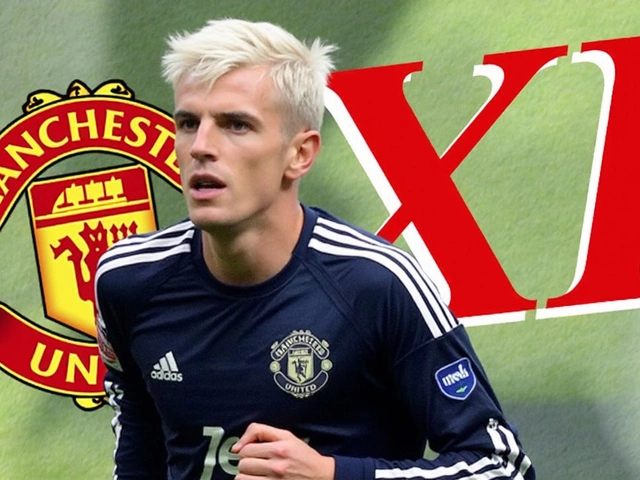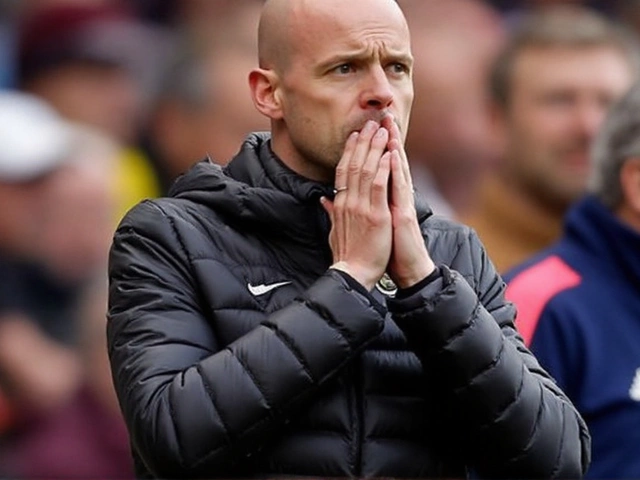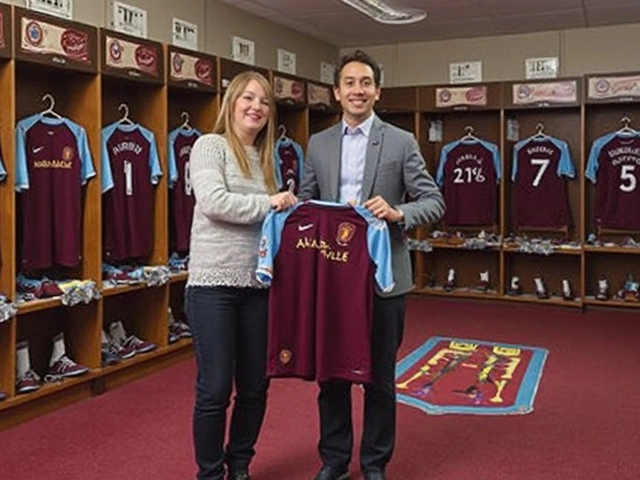A record-breaking sacking after two games
Germany has seen quick managerial changes before, but this one sets a new benchmark. Bayer Leverkusen fired Erik ten Hag after just two Bundesliga matches, a record early dismissal that underlines how uneasy the club felt about the direction of the team. The Dutch coach, appointed in May 2025 to succeed Xabi Alonso, leaves with barely enough time to establish a routine on the training pitch, let alone a new identity.
Sporting director Simon Rolfes announced the move on Monday, calling it a difficult decision but saying recent weeks convinced the hierarchy the project was veering off course. CEO Fernando Carro echoed that view, acknowledging the call was painful yet necessary. The message from the top: the reset under a new coach wasn’t taking, and waiting longer risked deeper damage to a squad still adjusting after a summer of change.
Leverkusen’s choice is inseparable from the standard Alonso set. Under him, the club put together a historic 2023–24 campaign—unbeaten in domestic competition and champions of Germany for the first time in 120 years. That run was built on quick combinations, relentless pressing, and a front-foot mentality. Ten Hag’s more conservative approach, aimed at controlling games through structure and risk management, clashed with that DNA. The players knew one way; the new plan asked them to do another. The transition never clicked.
The breaking point arrived with a bruising lesson in game management. Against Werder Bremen, Leverkusen raced into a two-goal lead and then imploded. Captain Robert Andrich did not sugarcoat it afterward: “Everyone played for themselves, everyone ran around the pitch on their own. We have too many players who are preoccupied with other things or only with themselves.” For a group that had prided itself on cohesion, those words landed hard, inside and outside the dressing room.
Ten Hag was stunned by the decision. In a strongly worded statement, he argued that building a cohesive side takes time and trust, and said he had received neither. He called the decision to suspend him “a complete surprise” and described parting ways after two league games as unprecedented. In pure numbers, he’s right: the timing is remarkable. But Leverkusen’s leadership judged the early warning signs—tactical friction, lack of clarity in roles, and a dip in collective intensity—as too glaring to ignore.
Rolfes offered a glimpse into the club’s internal calculus: a summer of churn meant integrating a cluster of new signings while responding to departures from the title-winning core. That alone requires calm direction. When performances wobble and the captain questions unity after Matchday 2, executives tend to act fast. Leverkusen chose to stop the experiment before it hardened into a pattern.
What it means for Leverkusen—and for Ten Hag
So where does Leverkusen go from here? Expect a swift interim appointment to stabilize the training ground and restore familiar principles. The job in the short term is pragmatic: simplify the structure, lean back into the high-tempo, positional rotations that made this group elite, and re-establish a leadership spine that keeps the team compact when momentum swings. European group-stage football is close, and there’s no time for a prolonged identity search.
On the pitch, that probably means a few immediate tweaks. Press triggers have to be clear again. The fullbacks and wingers need license to overload wide areas, with midfielders stepping in to close counter-pressing gaps. Central defenders must be comfortable defending space, not just sitting in shape. None of this is reinvention; it’s a return to muscle memory that many players developed over the past two seasons.
The broader challenge sits with squad dynamics. When key contributors leave after a title run, you don’t just lose goals and assists—you lose automatic understanding. New arrivals come with different habits and different rhythms. A coach trying to reshape the build-up while personalities are still jelling can set off chain reactions: uncertainty in pressing, hesitation in transition, frustration in the final third. One bad second half, like the collapse against Bremen, exposes all of it at once.
Inside the club, expect a renewed emphasis on clarity. Training sessions will likely refocus on compactness between the lines and faster ball circulation through midfield—fast enough to disorganize opponents, not just keep possession. If the interim staff can tighten distances and get five or six core players clicking again, results usually follow in the Bundesliga’s early autumn grind.
For Ten Hag, the optics are tough. He arrived in the Rhineland hoping to reset his career after an uneven Manchester United tenure—two trophies in the cabinet, but a rough start to 2024–25 that cost him his job. The Leverkusen stop was supposed to prove he could blend structure with speed without smothering creativity. Instead, it ends with questions about fit, timing, and communication. The market will remember his cup successes, but it will also ask whether his methods need a different squad profile—or simply more patience than elite clubs are willing to grant.
This episode also says something about the Bundesliga’s top end in 2025. The margin for error has shrunk. Clubs that aspire to go toe-to-toe in Europe—and maintain domestic dominance—rarely tolerate early-season drift. Sacking a coach after two games is extreme, but it signals where expectations sit when an expensive, ambitious squad looks unsure of itself.
Money and momentum are part of the calculus. Early exits cost in severance and reputational noise, yet the price of letting a slide continue can be higher: missed revenue from European progression, lost ground in the title race, and, just as crucial, damaged confidence that can take months to repair. Executives tend to choose the clean cut over a long bleed.
The dressing room now becomes the immediate hinge. Andrich’s blunt assessment was a wake-up call—players speaking publicly about selfishness rarely happens without buildup. The next coach has to rebuild trust through roles that make sense. Give attackers freedom with guardrails. Give midfielders defined zones and pressing timings. Give defenders a compact structure that doesn’t leave them chasing shadows. It’s not revolutionary, but at this level execution beats grand designs.
Leverkusen will want this week quiet and purposeful: meetings, video, short sessions focused on distance management and rest-defense. Then back to games, where the only statement that matters is tempo on the ball and control without it. The club promised clarity. Now it has to show it.
- May 2025: Ten Hag appointed to replace Xabi Alonso after the Spaniard’s move to Real Madrid.
- Matchday 1–2: Early signs of tactical friction and cohesion issues.
- Werder Bremen game: Two-goal lead surrendered; captain Robert Andrich laments a lack of togetherness.
- Monday: Leverkusen dismiss Ten Hag, the earliest coaching exit in Bundesliga history. Interim plan to follow.









Write a comment